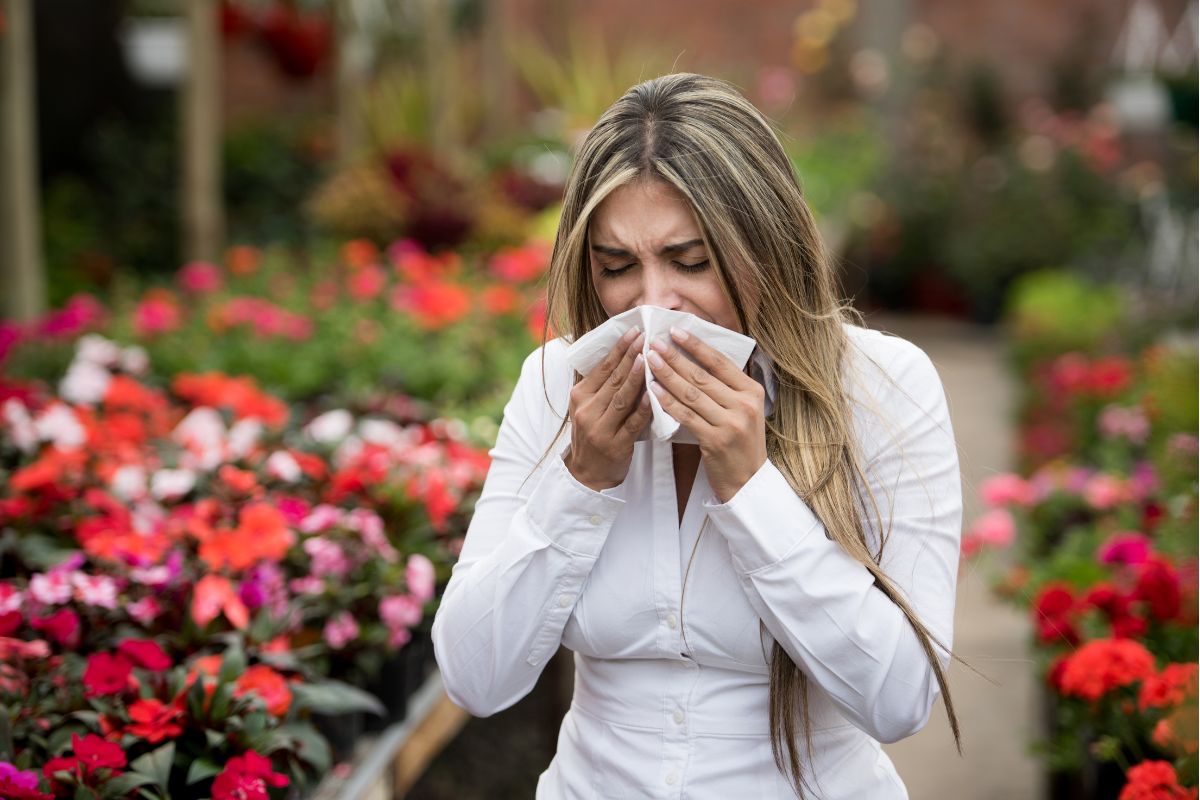Summer in the UK might mean sunshine, picnics and longer evenings but for hay fever sufferers, it also marks the height of allergy season. As pollen levels rise, so do symptoms like itchy eyes, sneezing and perhaps most frustratingly, congestion that affects your sleep. If you’ve noticed your snoring getting worse lately, seasonal allergies could be the culprit. Thankfully, there are ways to manage it and get a better night’s rest — for both you and your partner.
Why allergy season can make snoring worse
During allergy season, your body reacts to allergens like pollen by releasing histamines. This leads to inflammation and swelling in the nasal passages, making it harder to breathe through your nose. When you can’t breathe properly, you’re more likely to sleep with your mouth open — and that’s when snoring often kicks in.
Night-time congestion doesn’t just disrupt your own sleep; it can impact your partner’s, too. Loud, irregular snoring can lead to poor-quality rest, fatigue and even increased tension in relationships. If this sounds all too familiar, it might be time to look at solutions that directly target the cause.
Support your breathing with Snoreeze Nasal Spray
The Snoreeze Nasal Spray is specially formulated for people who snore due to blocked nasal passages. Using a blend of natural ingredients, it works by reducing inflammation and opening up the nasal airway. This makes it easier to breathe through your nose and less likely that you’ll resort to mouth breathing whilst you sleep.
Perfect for use during allergy season, this spray can provide fast, effective relief from hay fever-related snoring. It’s easy to use, non-drowsy and safe for nightly application.
Gentle but powerful: Snoreeze Nasal Strips
Another great solution for those suffering through allergy season is Snoreeze Nasal Strips. These drug-free adhesive strips physically open the nasal passages by gently lifting the sides of your nose. This helps air flow more freely and reduces the vibration that causes snoring.
They’re ideal for people who want an instant, no-fuss approach to clearing nasal congestion caused by hay fever. Plus, they’re discreet and comfortable — you’ll barely notice they’re there.
Open your nose naturally with the Snoreeze Nasal Dilator
If you’re struggling to breathe through your nose during allergy season, the Snoreeze Nasal Dilator offers a simple, reusable solution. Designed to sit comfortably just inside the nostrils, it gently widens the nasal passages to improve airflow and reduce snoring caused by congestion.
Unlike adhesive strips, the nasal dilator works internally to physically prevent nasal collapse — a common issue for hay fever sufferers when inflammation narrows the airway. It’s discreet and ideal for those looking for a non-medicated, cost-effective option that can be used night after night.
Double up for extra relief
For those who struggle with severe congestion during allergy season, combining the Nasal Spray and Nasal Strips can offer an added layer of relief. The spray works to reduce swelling internally, while the strips provide external support to keep nasal passages open throughout the night. Used together, they can help tackle congestion from both angles — giving you the best chance at uninterrupted sleep.
Let’s face it — when you sleep better, everything feels easier. Your mood, focus and energy levels improve and your relationships benefit, too. If hay fever has been turning bedtime into a snore-filled struggle, now’s the time to act.
Breathe easier this summer
Snoring doesn’t have to be your summer soundtrack. With Snoreeze’s congestion-fighting products, you can take back control of your sleep — even at the height of allergy season. Whether you’re suffering from mild stuffiness or full-blown nasal blockages, there’s a solution designed to help you breathe easier and snore less.
Explore the full congestion range and take our Product Finder Quiz to find your perfect match.
Be sure to sign up for our newsletter to keep up to date with our latest products and insights.

